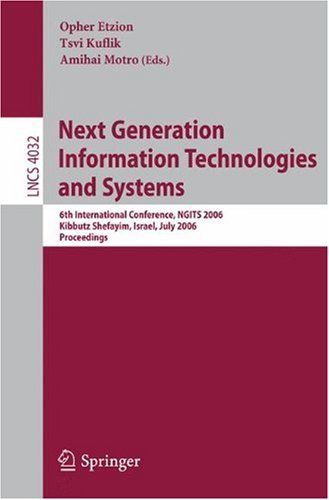

Most ebook files are in PDF format, so you can easily read them using various software such as Foxit Reader or directly on the Google Chrome browser.
Some ebook files are released by publishers in other formats such as .awz, .mobi, .epub, .fb2, etc. You may need to install specific software to read these formats on mobile/PC, such as Calibre.
Please read the tutorial at this link: https://ebookbell.com/faq
We offer FREE conversion to the popular formats you request; however, this may take some time. Therefore, right after payment, please email us, and we will try to provide the service as quickly as possible.
For some exceptional file formats or broken links (if any), please refrain from opening any disputes. Instead, email us first, and we will try to assist within a maximum of 6 hours.
EbookBell Team

4.8
54 reviewsInformation technology is a rapidly changing field in which researchers and developers must continuously set their vision on the next generation of technologies and the systems that they enable. Suitably, Next-Generation Information Technologies and Systems (NGITS) is an ongoing series of workshops that provides a forum for presenting and discussing the latest advances in information technology. NGITS took are international events held in Israel; previous workshops took place in 1993, 1995, 1997, 1999 and 2002. The call for papers for the 2006 workshop was answered by 138 papers on a very diverse range of subjects, thus presenting a considerable challenge to the Program Committee. Each of these papers received professional reviewing from at least three experts, and eventually 32 papers (less than 25%) were selected for presentation at the workshop and inclusion in these proceedings. Of these, 28 are full-length papers and 4 are short papers. In addition, several research works were selected to display “poster” presentations, and a number of research projects exhibited demonstrations. Finally, the workshop featured three keynote lectures by notable experts. The selected papers may be classified roughly in ten broad areas: ? Information systems development ? Distributed systems ? Semi-structured data ? Data mining and agent-oriented computing ? User-oriented design ? Frameworks, models and taxonomies ? Simulation and incremental computing ? Information integration ? Security and privacy ? Next-generation applications This event is the culmination of efforts by many talented and dedicated individuals.